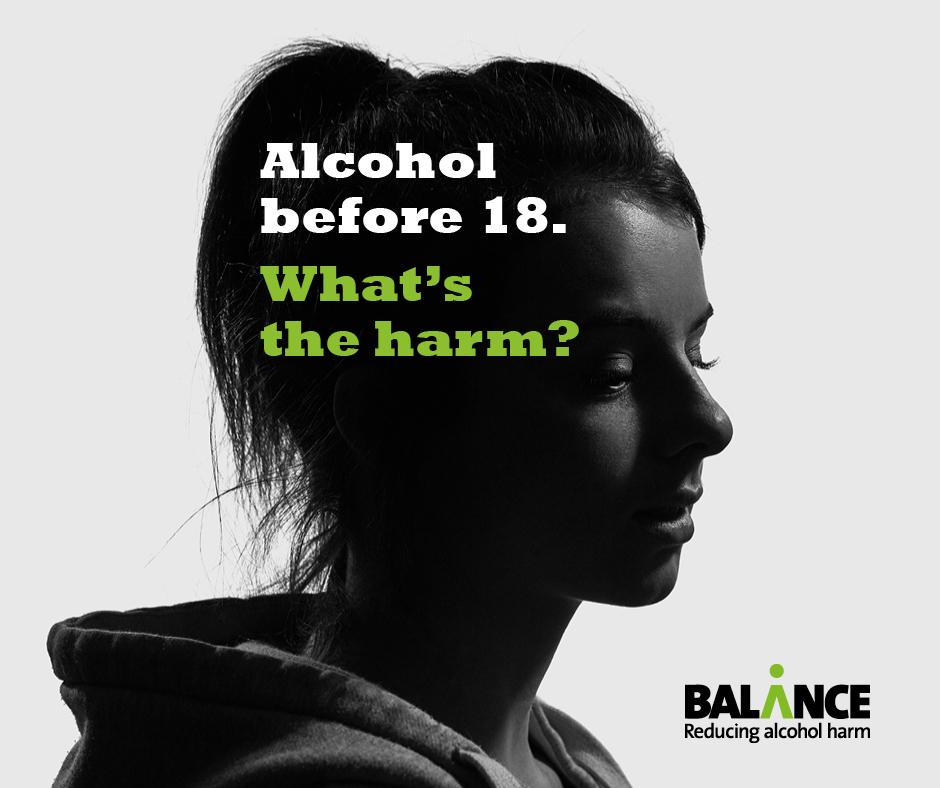11 July 2023
| | 2 min readNorth East parents urged to think twice about providing alcohol to children
Balance and Newcastle City Council have issued a plea to parents to think twice about providing alcohol to children or teens this summer.

It comes as local authorities and police step up patrols and activity across the North East designed to support alcohol age of sale laws and community safety.
Balance is launching the What’s the Harm? campaign aimed at giving parents information about the risks of under-age drinking and encouraging families to think twice about providing alcohol.
Alcohol in childhood increases the risks of accidents, injuries, smoking and drug taking, and can affect children’s mood and mental health. But 70% of alcohol drank by children comes from the family home.
If children drink, this also increases their risk of them drinking more heavily as older teens and adults. Longer term, this raises the risks of diseases such as heart disease and seven types of cancer, including breast and bowel cancer.
Susan Taylor, Head of Alcohol Policy for Balance, said: “We all want the best for our children. No parent wants to think their child might be the one getting drunk, taking risks, having an accident or getting into a situation they can’t handle.
“But the fact is most of the alcohol that ends up in the hands of children comes from the home – often from parents. This undermines alcohol age of sale laws which are there to protect both children and communities.
“Nearly half of North East adults are drinking above low risk limits and raising their risks of seven types of cancer and cardiovascular disease. The longer we can delay drinking alcohol in the lives of our children, the better.”
Chief Medical Officer (CMO)’s guidance recommends an alcohol-free childhood up to 18 is the healthiest and best option, but if children do drink it should not be before age 15.
Ailsa Rutter OBE, Director of Fresh and Balance, added: “At the moment vaping is occupying a lot of concern from schools, parents and teachers and this is understandable. But the question is whether we are taking youth drinking as seriously as vaping?
“However, alcohol is a group one carcinogen which causes seven types of cancer, can ruin lives and result in dependency. We need to perhaps start to ask why giving children a few beers or ciders to have with friends is sometimes seen as a rite of passage.”
Cllr Karen Kilgour, Deputy Leader of Newcastle City Council and cabinet member for a Healthy, Caring City, said: “The summer holidays are a time when we see an increase in the number of children consuming alcohol especially in the city centre. We are therefore proud to support the ‘What’s The Harm? campaign to raise awareness of the impact drinking alcohol under 18 can have on a child’s development.
Alcohol consumption before 18 can also increase feelings of stress, anxiety, low self-esteem and depression and can lead to a negative relationship with alcohol in the future. We also know that consuming alcohol can lead to children or young people becoming vulnerable.
“At times the alcohol consumed by children is provided by parents. This campaign will support parents to understand the long-term impact that allowing children to drink alcohol can have.”
To find out the facts and the myths people can visit Whatstheharm.co.uk and download the free Parents Guide which can help parents have a conversation with their child about alcohol.
Alcohol and children: the facts:
Chief Medical Officer advice for parents is that an alcohol-free childhood is the healthiest and best option. However, if children drink alcohol, it should not be until at least the age of 15. If young people aged 15 to 17 years drink alcohol, it should always be with the guidance of a parent or carer or in a supervised environment.
Drinking, even at age 15 or older, can be hazardous to health. Children who drink increase their risk of involvement in a wide range of health and social problems.
Alcohol can affect all the different systems in the body and the fact that children’s organs are still developing can make them particularly vulnerable. We know that drinking alcohol can affect their liver, bones, hormones and even their growth. Children are smaller, which means alcohol’s effects work more quickly on them in the short-term. Alcohol poisoning can result in young people being admitted to hospital or worse.
Young people are not immune to the chronic diseases and conditions associated with excess alcohol consumption in adults, and liver disease is now occurring at a younger age.
Alcohol may increase feelings of depression. There is a relationship between adolescent alcohol use and mental health problem, as well as low mood and motivation which can affect performance at school.
Children who drink regularly are also more likely to smoke and take illegal drugs, have accidents and be involved in risk taking behaviours.
If you would like to give us feedback on our website, please complete this short online form.







